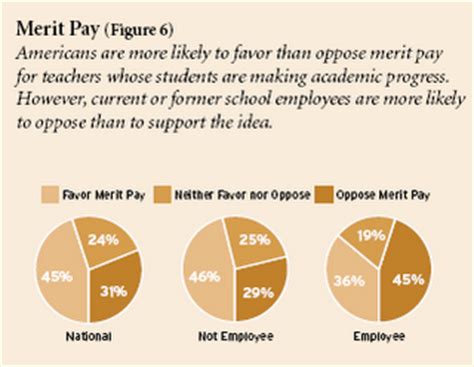Merit Pay: Pros And Cons You Should Consider

Merit pay, also known as performance-based pay, is a system in which employees are rewarded based on their job performance. This system has been gaining popularity in recent years, as employers seek new ways to incentivize their employees and improve overall productivity. However, like any system, merit pay has its pros and cons. In this article, we will discuss the advantages and disadvantages of merit pay and what you should consider before implementing it in your workplace.
The Pros of Merit Pay
1. Encourages Employee Motivation
One of the main advantages of merit pay is that it encourages employees to work harder and strive towards achieving their goals. When employees know that their hard work will be rewarded, they are more likely to put in extra effort and be more productive.
2. Gives Employees a Sense of Control
Merit pay also gives employees a sense of control over their pay. They know that their pay is based on their performance, which gives them a feeling of empowerment. This can lead to increased job satisfaction and a more positive work environment.
3. Attracts Top Talent
Employers who offer merit pay are more likely to attract top talent. This is because high-performing employees are always looking for opportunities to be rewarded for their hard work and dedication. By offering merit pay, employers can differentiate themselves from their competitors and attract the best employees.
4. Improves Employee Retention
Merit pay can also improve employee retention. When employees know that their pay is directly tied to their performance, they are more likely to stay with their employer for longer periods of time. This can help employers reduce turnover and retain their best employees.
5. Increases Accountability
Merit pay also increases accountability. When employees know that their pay is based on their performance, they are more likely to take ownership of their work and be accountable for their results. This can lead to a more responsible and productive workforce.
The Cons of Merit Pay
1. Can Create Unhealthy Competition
One of the main disadvantages of merit pay is that it can create unhealthy competition among employees. When employees are competing against each other for a limited pool of rewards, they may become resentful and hostile towards each other. This can lead to a toxic work environment and reduced productivity.
2. May Encourage Short-Term Thinking
Merit pay can also encourage short-term thinking. When employees know that their pay is tied to their performance, they may focus on short-term goals at the expense of long-term objectives. This can be detrimental to the overall success of the organization.
3. Can Lead to Biases
Merit pay can also lead to biases. Managers may have personal biases towards certain employees, which can affect their decision-making when it comes to rewards. This can create a perception of unfairness among employees and damage morale.
4. Can Be Difficult to Implement Fairly
Implementing merit pay fairly can be difficult. It requires clear and objective performance metrics, as well as a fair and transparent process for determining rewards. If the process is not transparent or objective, employees may feel that the system is rigged against them.
5. May Not Be Effective in All Situations
Finally, merit pay may not be effective in all situations. It may not work well in industries where job performance is difficult to measure objectively, or in situations where teamwork is highly valued. In these cases, other forms of compensation may be more appropriate.
Conclusion
Merit pay can be an effective way to incentivize employees and improve overall productivity. However, it is important to consider the potential drawbacks before implementing this system in your workplace. By weighing the pros and cons and considering your specific situation, you can make an informed decision about whether merit pay is right for your organization.
FAQs
What is merit pay?
Merit pay, also known as performance-based pay, is a system in which employees are rewarded based on their job performance.
What are the advantages of merit pay?
The advantages of merit pay include increased employee motivation, a sense of control for employees, improved employee retention, increased accountability, and the ability to attract top talent.
What are the disadvantages of merit pay?
The disadvantages of merit pay include unhealthy competition, short-term thinking, potential biases, difficulty in implementation, and the fact that it may not be effective in all situations.
What should I consider before implementing merit pay in my workplace?
You should consider the potential advantages and disadvantages of merit pay, as well as your specific situation and industry. You should also ensure that you have clear and objective performance metrics and a fair and transparent process for determining rewards.
